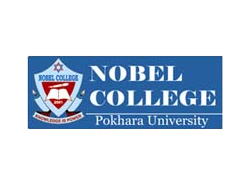Overview
BSc in Microbiology at Kantipur College of Medical Science (KCMS), Sitapaila, Kathmandu
The BSc at KCMS introduces medical, food, environmental, and industrial microbiology. Teaching follows TU-prescribed courses and exams. Students learn theory and practical skills that match routine laboratory work in Nepal.
Highlights
-
TU-affiliated bachelor’s program in Kathmandu
-
Structured practicals from the first year onward
-
Emphasis on biosafety, documentation, and reporting formats used in labs
-
Internal assessment plus TU board examinations
-
Guidance for internships or exposure visits as permitted
Curriculum Details
Core subjects include general microbiology, microbial physiology, genetics, immunology, medical microbiology, food and industrial microbiology, environmental microbiology, biostatistics, and research basics. Practical classes focus on aseptic technique, culture and staining, biochemical testing, antimicrobial susceptibility testing, sample handling, and quality checks. KCMS schedules practical records and viva sessions to reinforce accuracy.
Objectives
-
Build a clear foundation in microbial concepts and lab methods
-
Prepare students for routine diagnostic tasks and entry-level roles
-
Support readiness for MSc or laboratory specialization after graduation
Scope
Graduates enter diagnostic labs, food and water testing units, pharmaceutical quality control, environmental testing services, or move to MSc Microbiology. Scope depends on academic performance, practical skills, and openings that match national standards.
Learning Outcomes
Students who complete the BSc at KCMS usually can:
-
Handle clinical and environmental samples under supervision
-
Carry out culture, identification, and antibiotic testing correctly
-
Maintain lab notebooks and reports that meet audit needs
-
Communicate findings in clear, concise language
Skill Development Modules
-
Aseptic technique and contamination control
-
Culture media preparation and quality checks
-
Basic biostatistics and presentation skills
-
Lab safety, waste management, and incident reporting
-
Introductory data handling for small projects
Teaching Methodology
Faculty combine lectures, tutorials, and practical sessions. Internal evaluations include short tests, presentations, and practical checklists. TU exams certify final completion.
Admission Requirements
-
Eligibility: Science background at +2 or equivalent as per TU rules for BSc Microbiology.
-
Documents: Transcripts, character and migration/provisional certificates, and citizenship/passport copy.
-
Selection: KCMS may conduct a written test and interview. Final enrollment follows TU guidelines and seat availability.
Career Opportunities
Graduates pursue laboratory technologist roles, QA/QC support in food and pharma, and junior research positions. Many continue to MSc Microbiology for advanced roles.
Scholarships and Financial Aid
KCMS may publish scholarship notices each intake cycle. Students should track dates, criteria, and required documents from official notices.
Why Choose This Course?
Students who prefer hands-on learning, structured records, and careful lab practice progress well here. Kathmandu location supports access to service settings for exposure activities where possible.
Conclusion
The BSc in Microbiology at KCMS offers a clear path into laboratory and industry-linked roles under TU standards. Students seeking a science degree that links classroom study to real lab practice find a practical route here.



















